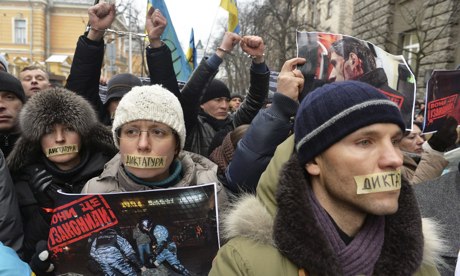by Tony Iozzo
Impunity Watch Reporter, Europe
BERLIN, Germany – Excerpts from a collection of photographs and approximately 700 letters and notes penned by Heinrich Himmler were published for the first time on Sunday.

The German newspaper, Welt am Sonntag, published parts of the collection in seven pages of its Sunday edition. The letters and notes are thought to be written by Himmler himself. Some of the pictures depict the Holocaust-era Nazi officer gently: posing with his family, and feeding a baby fawn.
The excerpts, which include Himmler’s love letters to his wife, will be a part of an eight-part series that the newspaper is planning to publish. According to the newspaper, two American soldiers found the collection at the end of the war in May 1945 inside of a safe in Himmler’s Bavarian home. Fast forwarding to the 1980’s, the collection surfaced again in Israel, in the possession of Chaim Rosenthal, a holocaust survivor. Rosenthal sold the collection in 2007 to Israeli film director Vanessa Lapa’s father, who gave them to Lapa.
Lapa then approached the German newspaper three years ago about the collection. The newspaper has since verified the authenticity of the collection by historians. Lapa will unveil a documentary that she directed on the Himmler collection at the Berlin International Film Festival next month.
Himmler’s wife, Marga, shared Himmler’s hatred of Jewish people, as they both regularly referred to Jews in derogatory terms in their letters to each other. In a letter dated June 21, 1928, Himmler wrote to Marga: “Don’t be upset about those Jews, good, good wife, if only I could help you.” Ten years later, Marga wrote in a diary entry dated Nov. 14, 1938, “Those Jews, when will that pack finally leave us so that we can enjoy our lives again.”
The collections document the progression of Himmler’s career from the beginning in the 1920’s, to the Holocaust of the 1940’s. Himmler does not explicitly write about the happenings of World War II. However, small quotes in the collection reveal his involvement, as when he writes to his wife “I’m going to Auschwitz, kisses, yours Heini.” Himmler committed suicide on May 23, 1945, in Lueneburg, Germany, after he was captured by British forces.
For more information, please see:
New York Daily News – German Newspaper Publishes Top Nazi Himmler’s Letters and Photos – 27 January 2014
AP News – German Newspaper Publishes Top Nazi’s Letters – 26 January 2014
Fox News – German Newspaper Publishes Top Nazi’s Letters – 26 January 2014
The Local – Caviar, Auschwitz, Love- Himmler’s Letters to Wife – 26 January 2014



